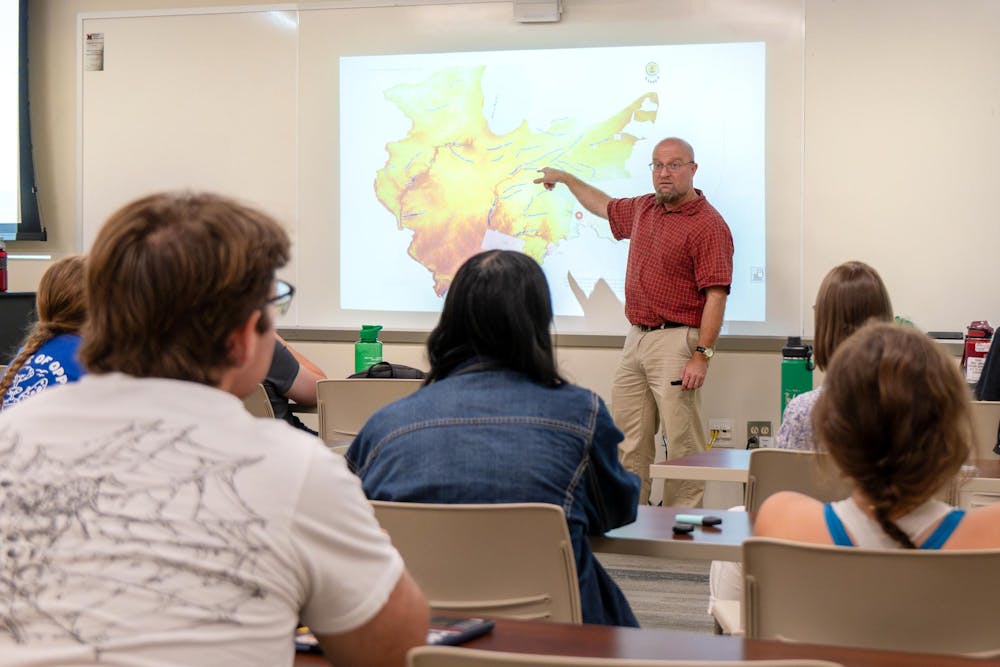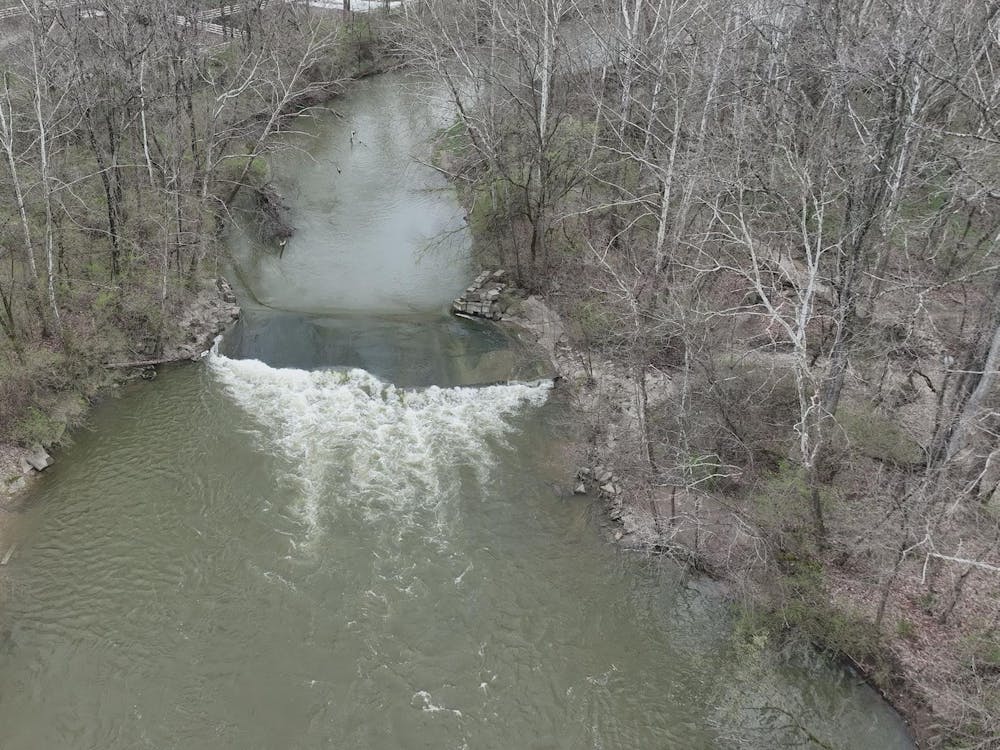In spring of 2025, Senate Bill 1 (S.B. 1) sent the Ohio world of higher education into a frenzy. Signed into law by Governor Mike Dewine, the bill impacts several aspects of higher education.
Most notably, it eliminates Diversity, Equity and Inclusion (DEI) programs in public universities, implements academic requirements, such as the centralized public posting of course syllabi and restricts professors from taking a stance on several “controversial topics” named in the legislation.
One of these “controversial topics” is climate policy.
Professor of biology David Gorchov teaches Principles of Environmental Science (IES 275), a course that heavily discusses both climate science and climate policy. Despite campus-wide changes from this legislation he said he believes Miami University’s climate education will remain largely unchanged.
“I don’t think it’s going to change it very much,” he said. “It’s not going to change the way I teach environmental science.”
This is due to the key distinction between “climate science” and “climate policy” in the legislation. The scientific consensus that the climate is changing and warming due to increased concentrations of carbon dioxide and other greenhouse gases primarily caused by human combustion is not considered controversial – only specific policies addressing this phenomenon are classified as such.
“Climate science is not a controversial scientific topic, so I’m not going to treat it as such,” Gorchov said.
Elise Radina, associate provost for faculty affairs, also said it is unlikely that S.B. 1 will impact climate education at Miami, as the bill does not restrict the topics that can be included in academic courses. Instead, faculty are expected to encourage students to come to their own conclusions on “controversial” topics.
“Creating a classroom environment that fosters healthy discussion and the exchange of ideas does not mean that the introduction of challenging or controversial material should be curtailed,” Radina said in a statement to The Miami Student. “The expectation is that faculty will create the opportunity for students to express their intellectual diversity and reach their own conclusions on ‘controversial beliefs and policies.”
Gorchov said he has always encouraged students to discuss climate policy amongst themselves, read different perspectives and come to their own conclusions, and he will continue to do so. He often has students read different articles relating to a specific climate policy, or uses current events as a way to initiate conversation on policy.
“Miami remains committed to freedom of expression, as required under our institutional Campus Free Speech policy,” Radina said in a statement to The Student.
Gorchov said his biggest concern with S.B. 1 is the way it manages university activities. He said this level of oversight will cost money, keep administration busy and give faculty extra work.
Enjoy what you're reading?
Signup for our newsletter
“The state was already governing Miami and other public universities, but to have these specific measures… it’s just state government overreaching and micromanaging,” he said.
J.D. Wulfhorst, director of the institute for the environment and sustainability, said the university is working to be proactive about meeting S.B. 1 requirements. One requirement is the centralized posting of course syllabi. He said software will be piloted this year to ensure the system is running smoothly by the time it is required.
Wulfhorst said that he does not anticipate S.B. 1 to bring cumbersome additions to his job or curtail classroom discussion. However, he said discussion around the bill has caused cultural shifts in the field and led to staff anxiety.
“It’s a doable task, but it’s also a changing culture, because as faculty and instructors, we’re not used to thinking that way,” Wulfhorst said. “We’re not used to trying to say, ‘Oh I’m gonna put my syllabus out there for the world to see,’ because we think of it as a social contract with our students in that course.”
Gorchov said he has also been at the forefront of this uncertainty. Another worry of his is that some good professors will decide not to bother with these regulations and choose to teach in other states. However, he believes the student classroom experience will not be affected much.
It was an earlier version of S.B. 1 that caused him to worry about climate education. The bill has since been revised.
“Early on, that draft that had climate science listed as controversial was really upsetting to me,” Gorchov said.
Gorchov said this concern prompted him to contact a state representative to express that climate science was not controversial, and that he was relieved to see this proposal changed early on in the process.
Wulfhorst said that as the bill stands now, he is confident that classrooms will continue to use scientific principles while promoting open discussion and healthy dialogue. As director, he said hopes to support IES faculty and students who are feeling uncertainty about climate education at this time.
Facing this air of uncertainty head on is also important to Wulfhorst, who said he hopes broader conversations about climate education will continue both in and out of the classroom, so individuals understand what is actually changing and how to respond.




